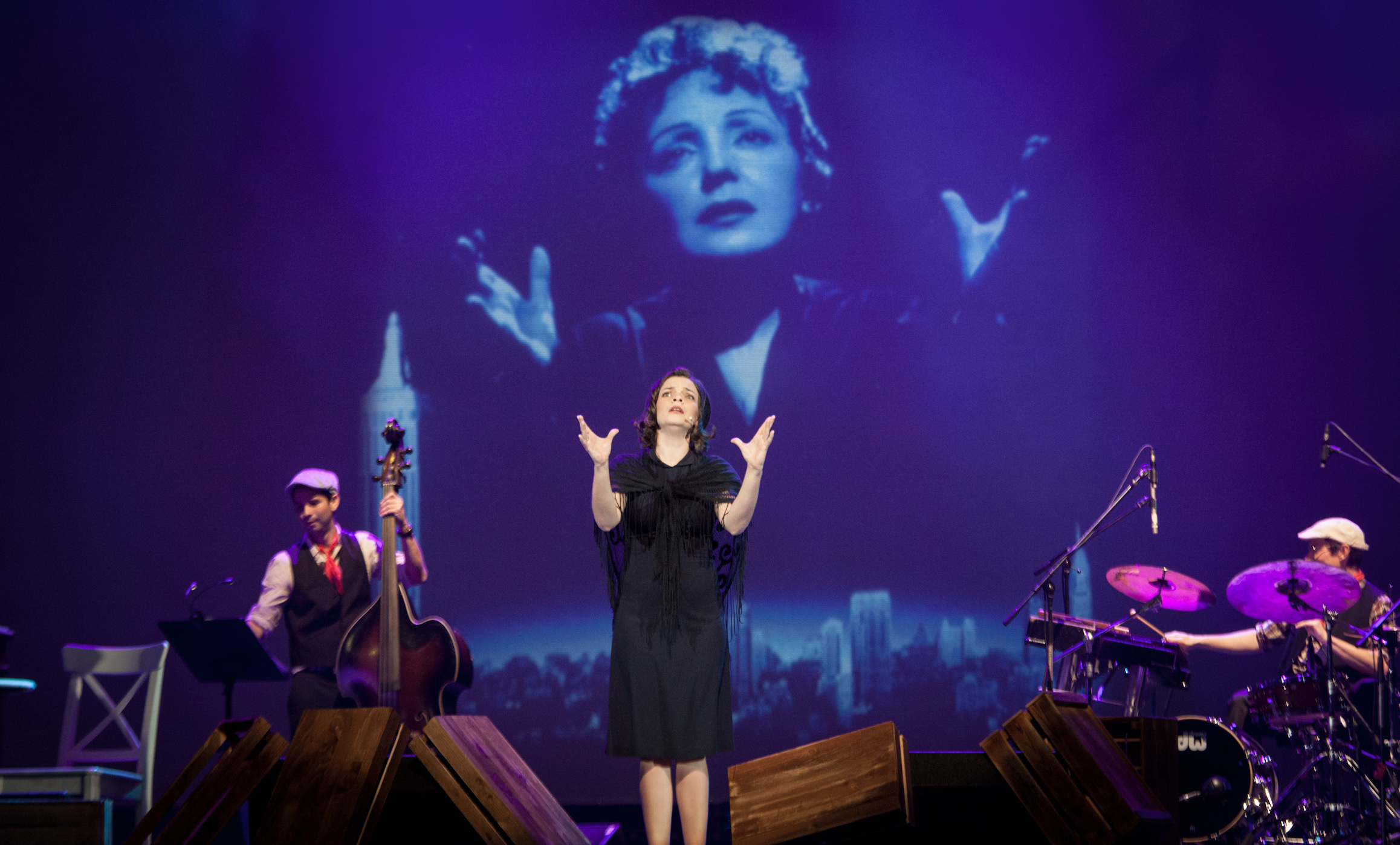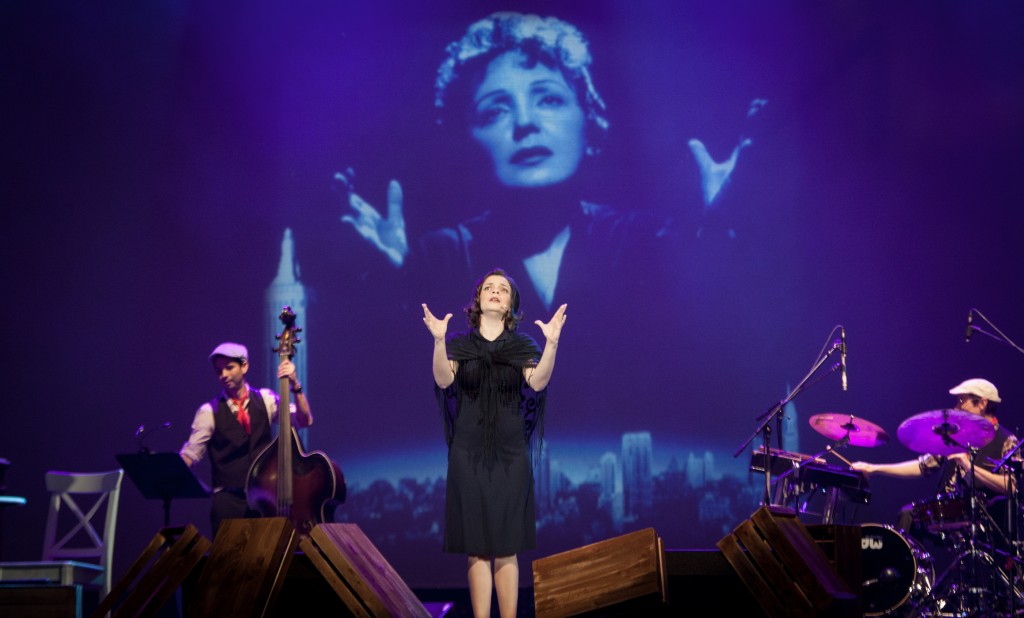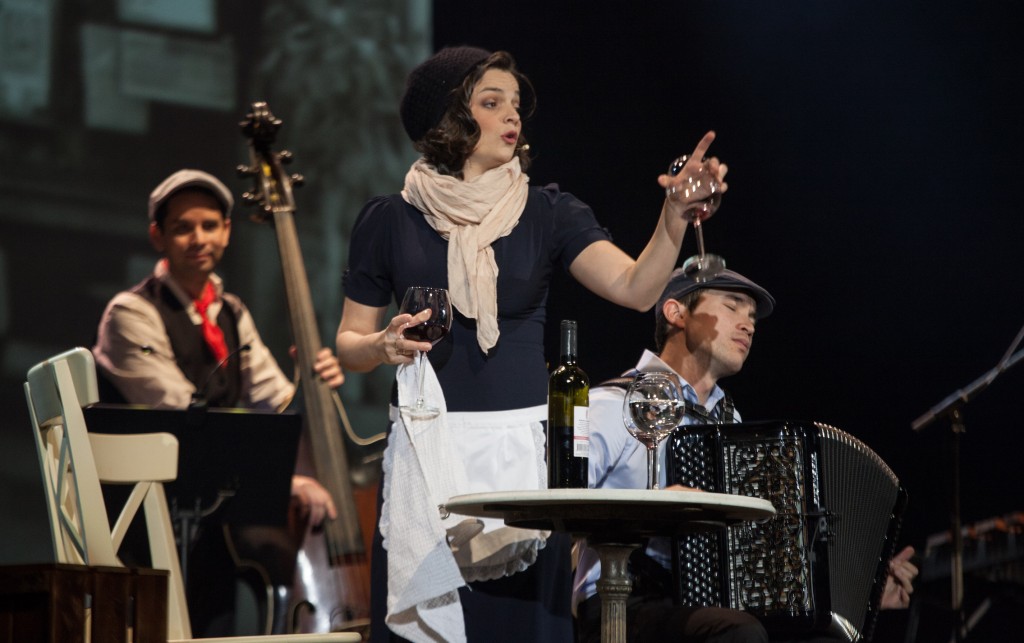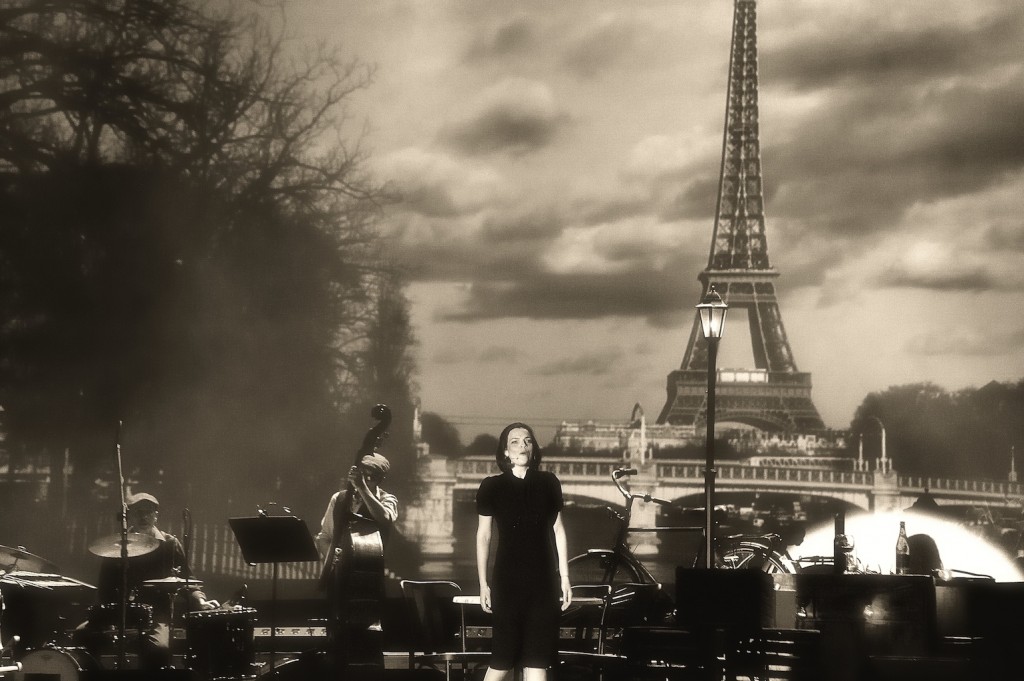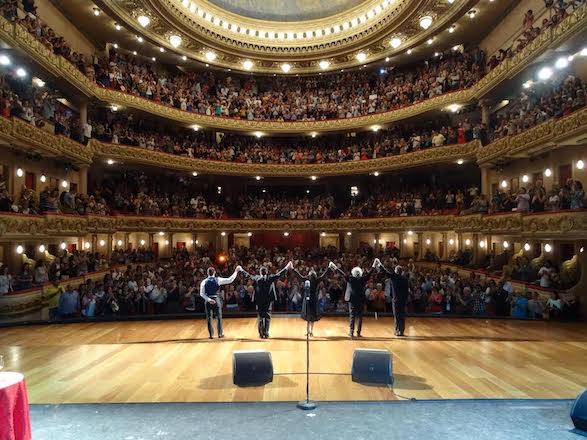by Alix Cohen
Producer/Director/Writer Gil Marsalla evidently discovered Anne Carrere when she auditioned for another show. With a Piaf tribute in the back of his mind, the impresario thought he struck gold. He did. Like The Little Sparrow, Ms. Carrere possesses a powerful voice, emphasized vibrato, the phrasing of an actor, and compelling presence. Hand gestures- fingers splayed or fisted, entreating or punching, often emulate those of the the iconic vocalist. Carrere’s unflagging ninety minutes is an appreciable accomplishment. Our audience rises to its feet more than once.
Act I employs grand scale projections of Paris starting in the 1930s, Piaf’s life, and media coverage in front of which the young performer busks for survival. Diminutive Ms. Carrerre appears scrappy and vulnerable in a grey jacket, beret and flats. She flirts with/relates to members of her band as if they were characters. Michel Elmer’s familiar “L’Accordeoniste” is poignant …The good-time girl is sad/At the corner of the road over there./ Her accordionist/He went away as a soldier… “Elle Frequentait la Rue Pigalle” (R. Asso/L. Maitrier) harsh, “C’est un Gars” (Pierre Roche/Charles Aznavour) …there’s this guy who entered my life/He tells me crazy things/He tells me I’m pretty… charming. Most are early storytelling songs.
In Act II, Carrere resumes her own identity with a short dress and very high heels. Here she’s clearly not playing the role. “Almost 60 years to the day, Edith Piaf was singing here,” she tells us in halting English, swept up by performing on the stage of Piaf’s 1957 concert. Numbers that follow were heard at The Olympia Theater in Paris and Carnegie Hall.
“Les Feuilles Mortes/ Autumn Leaves” (Jacques Prevert/Joseph Kosma) arrives in French and English. A song of love and loss, “Les Mots D’Amour” (Michel Vaucaire/Charles Dumont) is accompanied by floating photos of the men in her life, ending with Theo Sarapo, Piaf’s husband of 1 year, twenty years her junior.
Surprisingly “Padam…Padam” (Norbert Glanzberg/Henri Contet) is less maddened, and the usually wrenching “Mon Dieu” (Michel Vaucaire/Charles Dumont) less galvanizing than they might be. We’re asked to sing “Non, Je ne Regrette Rien”- in French, words provided on screen. Most do, erupting in applause after the rallying cry.
Carrere becomes a coquette with several songs performed from the audience on men’s laps and one dancing in a stranger’s arms. These work well. Unfortunately a volunteer to whom she sings Marguerite Monnot’s famous “Milord” unwittingly acts like a bad clown. Still, Ms. Carrere delivers with determined brio. A remarkable evening.
In an effort to recreate the experience of a Piaf show, the piece is almost entirely in French with neither explanation of lyrics nor narrative about the honoree’s life, a surprise and handicap to many of us who are far less than fluent with the language. As it tours the more cultured world, however, objections are no doubt negligible.
Musicians: Philippe Villa-Piano, Laurent Sarrien-Percussion, Daniel Fabricant-Bass, and the remarkable Guy Giuliano-Accordion and Mouth Organ
Carnegie Hall January 6, 2017


